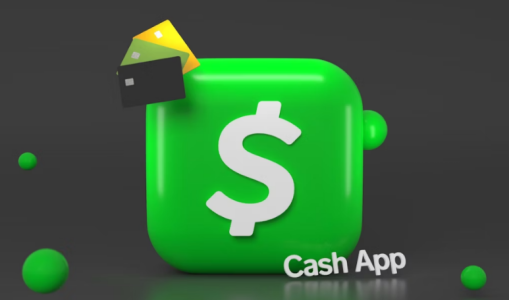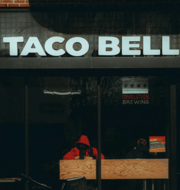Spam texts cost Cash App $12.5M—users may be owed up to $147 each
- Replies 0
Sometimes, the everyday nuisances that frustrate or interrupt us—like unsolicited messages or irritating notifications—can unexpectedly turn into opportunities we never saw coming.
If you've ever quickly dismissed a random text message assuming it was just another spam attempt, it might be worth reconsidering what it actually was.
A recent legal settlement tied to these types of messages could end up putting real money back into your pocket, with no complicated hoops to jump through and no fine print tricks involved.
It all traces back to a broader case that’s now quietly unlocking financial payouts for millions of eligible Americans across the country.
A Washington resident filed a lawsuit against Block, Inc., the parent company of Cash App, for sending unsolicited marketing texts to consumers.
Although the company denies any wrongdoing, it has agreed to settle the case for $12.5 million. The settlement means eligible individuals could receive up to $147 in compensation, depending on how many claims are filed.
This outcome applies to anyone who got a text from Cash App after November 2019 without opting in.
To qualify, you simply need to have received one of these messages after that date—no need to prove financial harm or sign up for Cash App.

According to official estimates, about two million people are eligible to receive a payout. The amount you’ll receive will vary, but it’s expected to fall between $88 and $147 per person.
Payments can be sent via paper check or digitally deposited into an eBay or Venmo account, though ironically, not through Cash App itself.
This type of case is known as a class-action lawsuit, where a company settles with a large group of people for the same alleged issue.
Instead of individuals suing on their own, one or more plaintiffs represent everyone affected. When a settlement is reached, each “class member” is offered compensation, provided they give up the right to sue again for the same matter.
Also read: Protect your inbox: How to spot and avoid USPS scam texts
These kinds of lawsuits allow regular people to hold big companies accountable—often for issues that might otherwise be ignored.
The app currently has over 55 million users and is projected to grow to 64.5 million by 2028. Despite its popularity, the company recently experienced a 15% decline in downloads, signaling possible challenges ahead.
Meanwhile, Cash App continues to add new features, including contactless “tap-to-pay” options for business sellers.
This isn’t the first legal bump for Cash App. Last year, the company agreed to pay out $15 million in a data breach settlement, with some users able to claim up to $2,500.
Like this case, it resolved without the company admitting any fault. For consumers, these settlements can mean real money for what might have seemed like a small or forgotten inconvenience.
If you think you might qualify, there are a few things you should do to be ready. First, review your text history and look for any unwanted messages from Cash App going back to November 2019.
Then, keep an eye out for official notices from the settlement administrator, which will include instructions for filing your claim.
When the window opens, don’t wait—these settlements often have hard deadlines and no second chances.
Also read: A warning text led to this costly mistake—how one couple lost over $80K in a shocking scam
Spam messages may seem minor, but they can cross legal lines that protect your privacy. This lawsuit shows that even a single text can count when it comes to holding companies accountable.
And with a few minutes of effort, you could walk away with cash that’s legally yours. For once, it pays to pay attention to your phone.
Read next: Don't fall for this USPS text scam—protect yourself before it's too late!

Have you ever received a spam text from Cash App or another company? Were you aware you might be owed money for it? Have you ever filed a claim in a class-action settlement before? Drop a comment and share your story—it might help someone else in The GrayVine community get what they’re owed.
If you've ever quickly dismissed a random text message assuming it was just another spam attempt, it might be worth reconsidering what it actually was.
A recent legal settlement tied to these types of messages could end up putting real money back into your pocket, with no complicated hoops to jump through and no fine print tricks involved.
It all traces back to a broader case that’s now quietly unlocking financial payouts for millions of eligible Americans across the country.
A Washington resident filed a lawsuit against Block, Inc., the parent company of Cash App, for sending unsolicited marketing texts to consumers.
Although the company denies any wrongdoing, it has agreed to settle the case for $12.5 million. The settlement means eligible individuals could receive up to $147 in compensation, depending on how many claims are filed.
This outcome applies to anyone who got a text from Cash App after November 2019 without opting in.
To qualify, you simply need to have received one of these messages after that date—no need to prove financial harm or sign up for Cash App.

Spam texts cost Cash App $12.5M—users may be owed up to $147 each. Image source: Mariia Shalabaieva / Unsplash
According to official estimates, about two million people are eligible to receive a payout. The amount you’ll receive will vary, but it’s expected to fall between $88 and $147 per person.
Payments can be sent via paper check or digitally deposited into an eBay or Venmo account, though ironically, not through Cash App itself.
This type of case is known as a class-action lawsuit, where a company settles with a large group of people for the same alleged issue.
Instead of individuals suing on their own, one or more plaintiffs represent everyone affected. When a settlement is reached, each “class member” is offered compensation, provided they give up the right to sue again for the same matter.
Also read: Protect your inbox: How to spot and avoid USPS scam texts
These kinds of lawsuits allow regular people to hold big companies accountable—often for issues that might otherwise be ignored.
The app currently has over 55 million users and is projected to grow to 64.5 million by 2028. Despite its popularity, the company recently experienced a 15% decline in downloads, signaling possible challenges ahead.
Meanwhile, Cash App continues to add new features, including contactless “tap-to-pay” options for business sellers.
This isn’t the first legal bump for Cash App. Last year, the company agreed to pay out $15 million in a data breach settlement, with some users able to claim up to $2,500.
Like this case, it resolved without the company admitting any fault. For consumers, these settlements can mean real money for what might have seemed like a small or forgotten inconvenience.
If you think you might qualify, there are a few things you should do to be ready. First, review your text history and look for any unwanted messages from Cash App going back to November 2019.
Then, keep an eye out for official notices from the settlement administrator, which will include instructions for filing your claim.
When the window opens, don’t wait—these settlements often have hard deadlines and no second chances.
Also read: A warning text led to this costly mistake—how one couple lost over $80K in a shocking scam
Spam messages may seem minor, but they can cross legal lines that protect your privacy. This lawsuit shows that even a single text can count when it comes to holding companies accountable.
And with a few minutes of effort, you could walk away with cash that’s legally yours. For once, it pays to pay attention to your phone.
Read next: Don't fall for this USPS text scam—protect yourself before it's too late!
Key Takeaways
- Cash App’s parent company, Block, Inc., agreed to a $12.5 million class-action settlement over spam texts sent to consumers without permission.
- Eligible individuals received one or more unsolicited text messages from Cash App after November 2019.
- The expected payout ranges from $88 to $147 per person, with around two million people qualifying.
- Payout options include a mailed check or deposit into an eBay or Venmo account.






